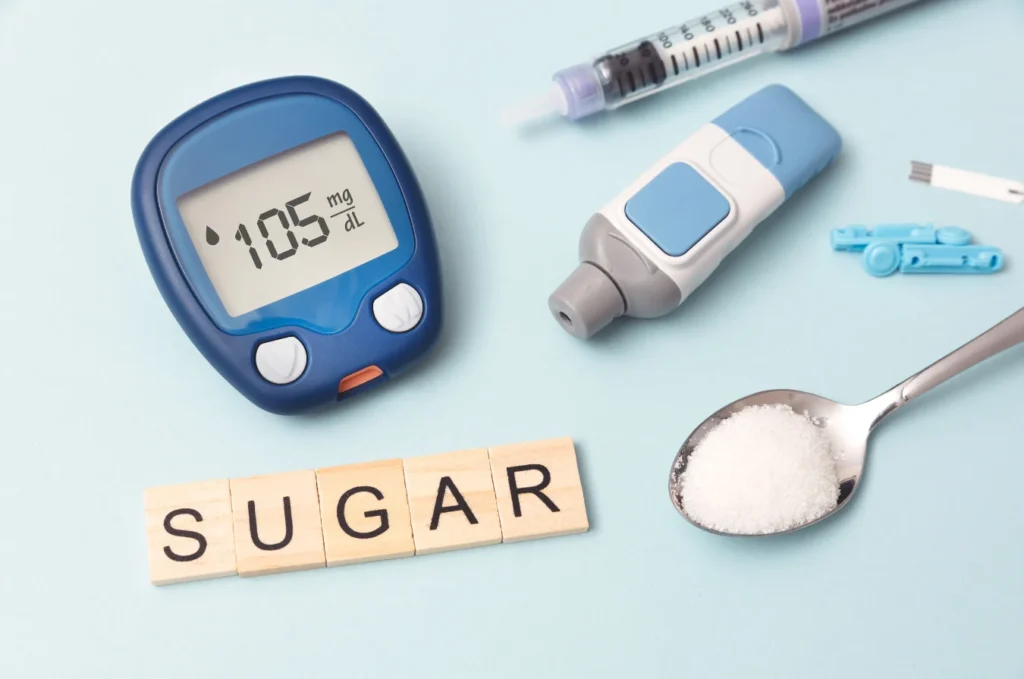Blood sugar and insulin resistance play a bigger role in weight loss than most people realize.
You can eat less, work out more, and still feel stuck if these two things are out of balance.
When your body struggles to manage blood sugar, it often responds by releasing more insulin making it harder to burn fat and easier to gain it.
These shifts can lead to constant cravings, low energy, stubborn belly fat, and slow progress no matter how hard you try.
But once you understand how blood sugar and insulin work together, weight loss becomes more predictable and much less frustrating.
In this guide, we’ll break down why these factors matter so much and share simple, realistic steps you can take to support better metabolism, steady energy, and healthier weight loss.
What Is Insulin and Why Does It Matter?
Insulin is a hormone made by your pancreas that helps move glucose (sugar) from your bloodstream into your cells so it can be used for energy. When everything is working properly, your blood sugar rises after a meal, insulin is released, and sugar moves into the cells.
But when your cells become less responsive to insulin, your body has to make more and more of it to get the same job done. This is called insulin resistance.
How Insulin Resistance Affects Weight Loss
When insulin levels are high for long periods, your body stays in “storage mode.” It becomes much harder to burn fat, and much easier to gain weight especially around your belly. Many people with insulin resistance also experience low energy after meals, intense sugar cravings, brain fog, and difficulty losing weight despite eating well and exercising.
You might be insulin resistant if you
- Feel tired after eating, especially meals high in carbs
- Need snacks or caffeine to stay energized throughout the day
- Gain weight easily, especially in the abdominal area
- Have been diagnosed with PCOS, prediabetes, or metabolic syndrome
Have strong cravings for sugar, especially in the afternoon or evening
What You Can Do to Improve Insulin Sensitivity
The good news is that insulin resistance is reversible, especially when caught early. A few changes can make a big difference:
- Choose meals that include protein, healthy fats, and fiber. This helps slow the release of sugar into your bloodstream.
- Reduce processed carbohydrates and sugars, including sugary drinks and snacks.
- Go for a short walk after meals. This improves insulin sensitivity and lowers blood sugar naturally.
- Prioritize sleep and stress management, both of which affect blood sugar regulation.
- Ask about natural supplements like berberine or myo-inositol. These can support healthy insulin and glucose levels.
Testing Can Help You Get Clarity
If you’re not sure whether insulin resistance is part of your picture, we can help you and your provider run lab tests that look at fasting insulin, glucose, and inflammation markers. Understanding your numbers helps us personalize your support plan.
The Bottom Line
If you’ve hit a plateau with your weight, feel tired after meals, or suspect something deeper is going on, it may be time to check in on your blood sugar and insulin balance. With the right support, you can start feeling better and moving forward again.
Chloe Lavieri, PharmD Candidate 2026


